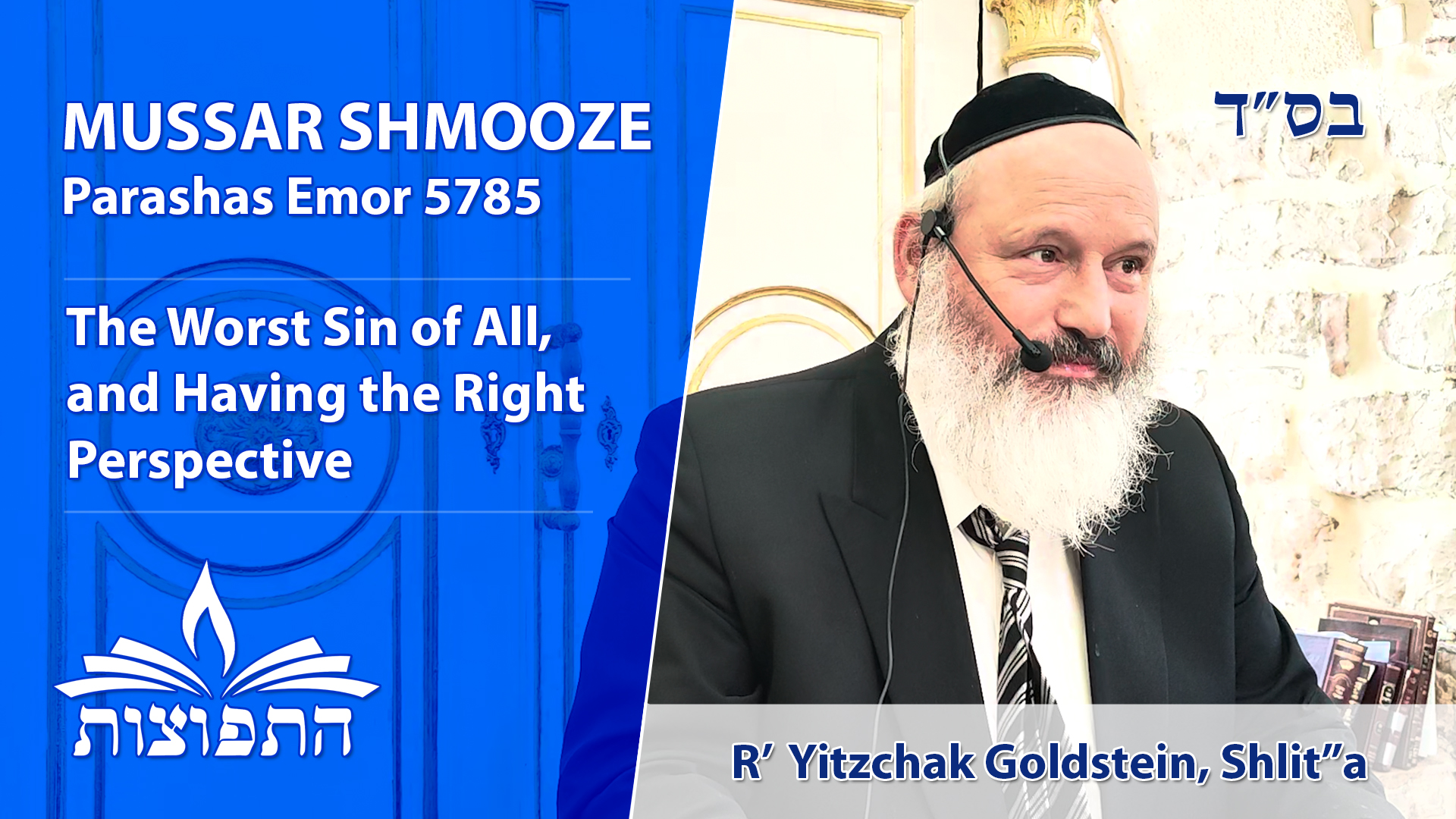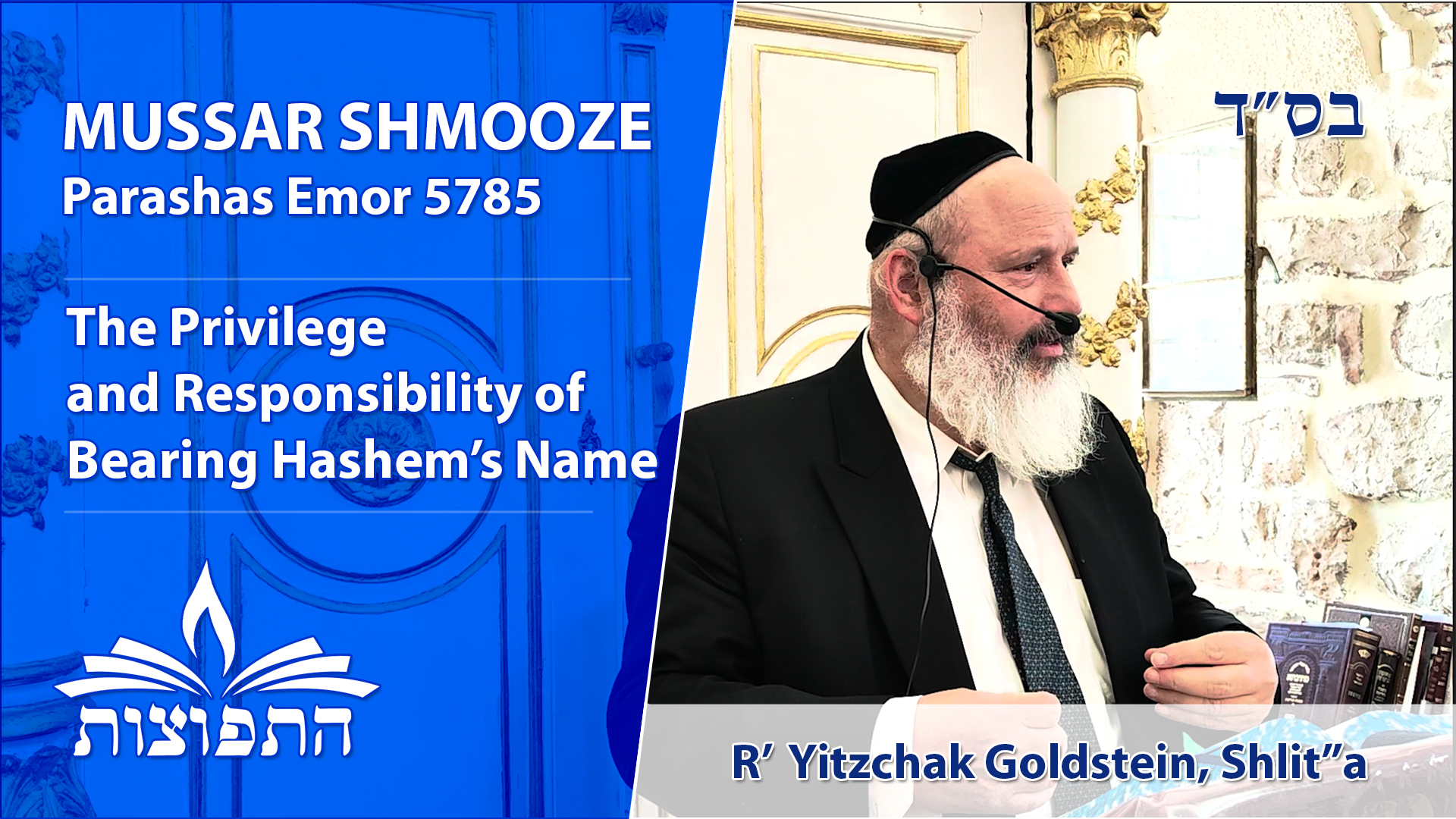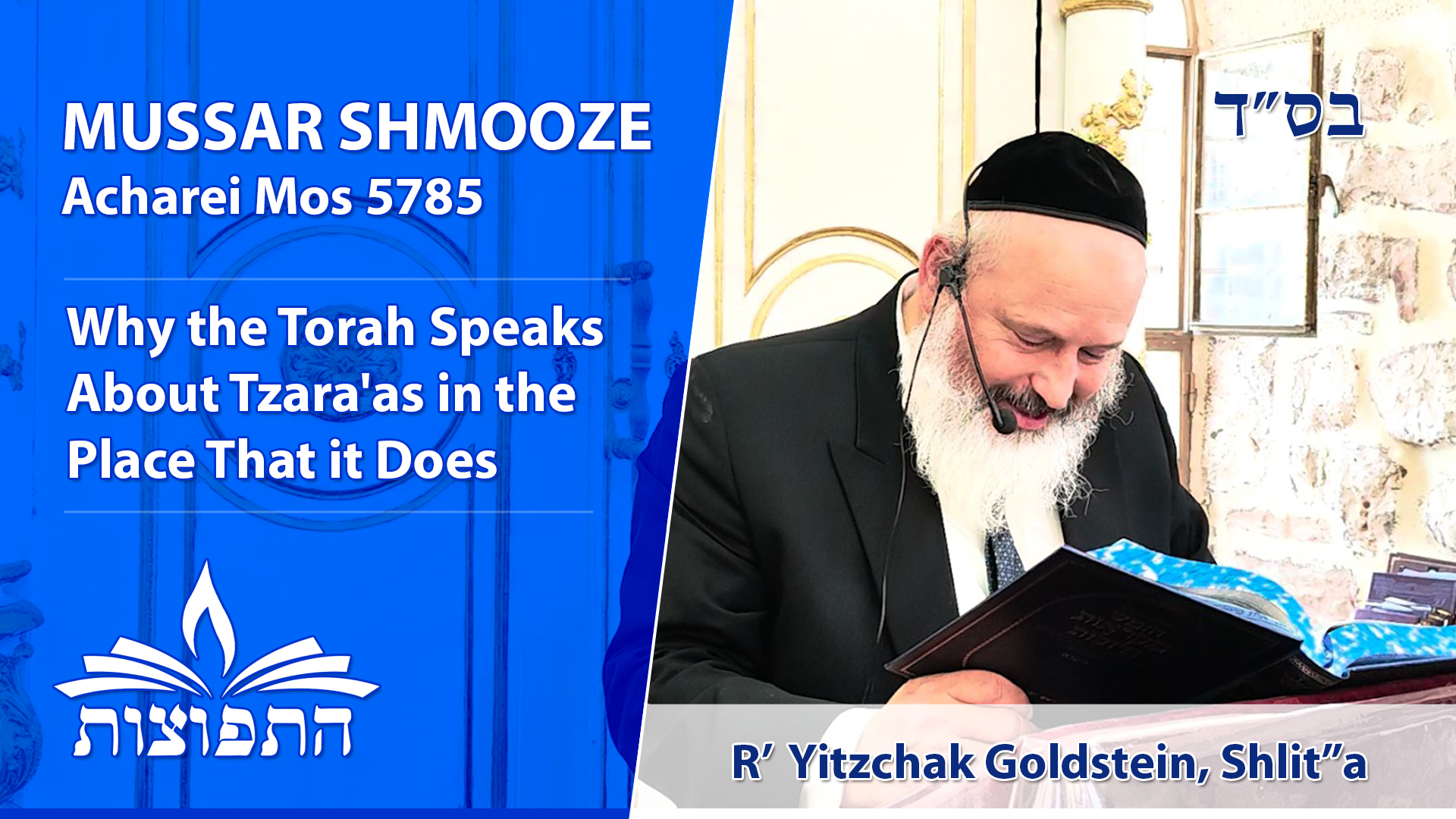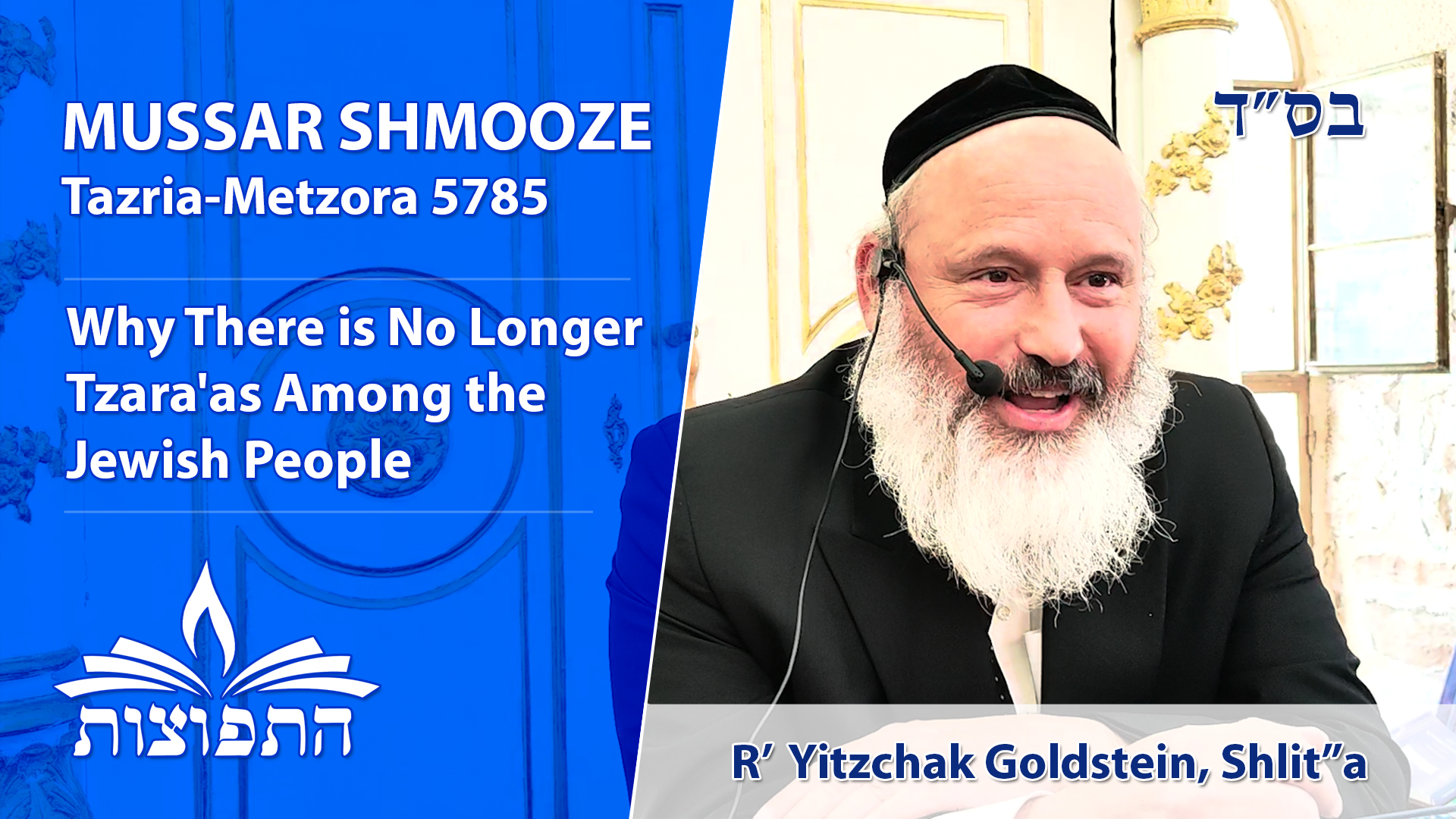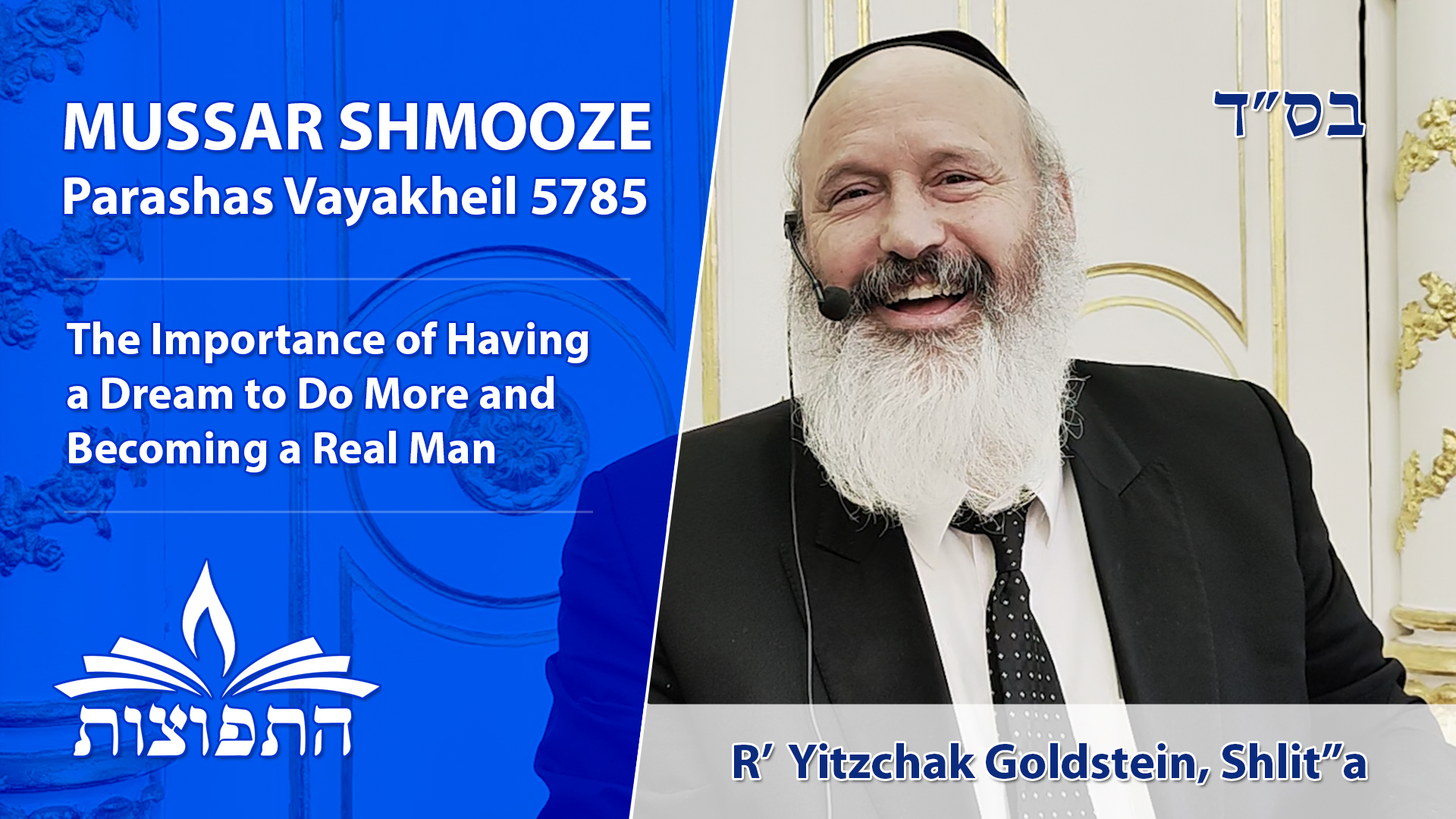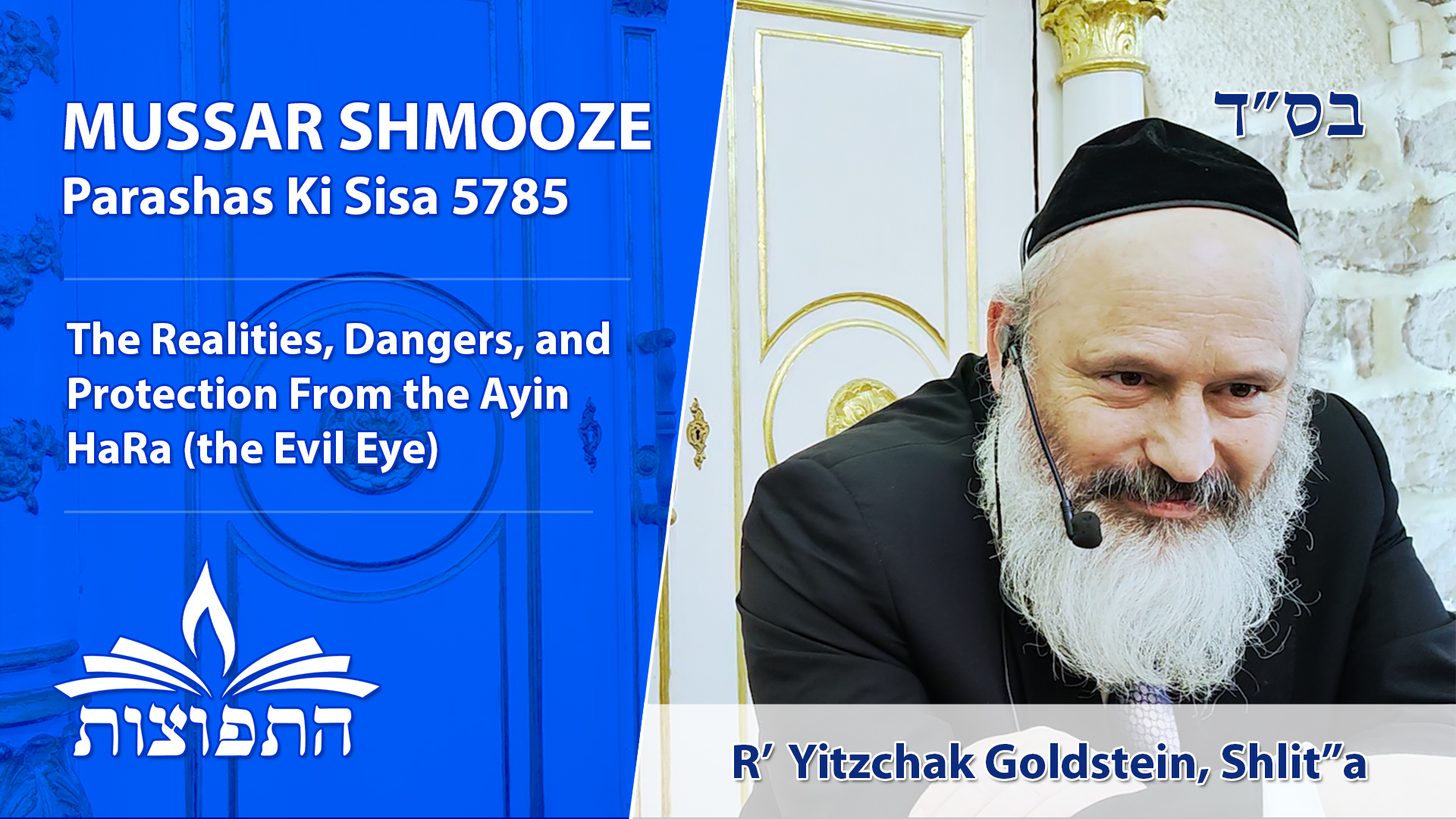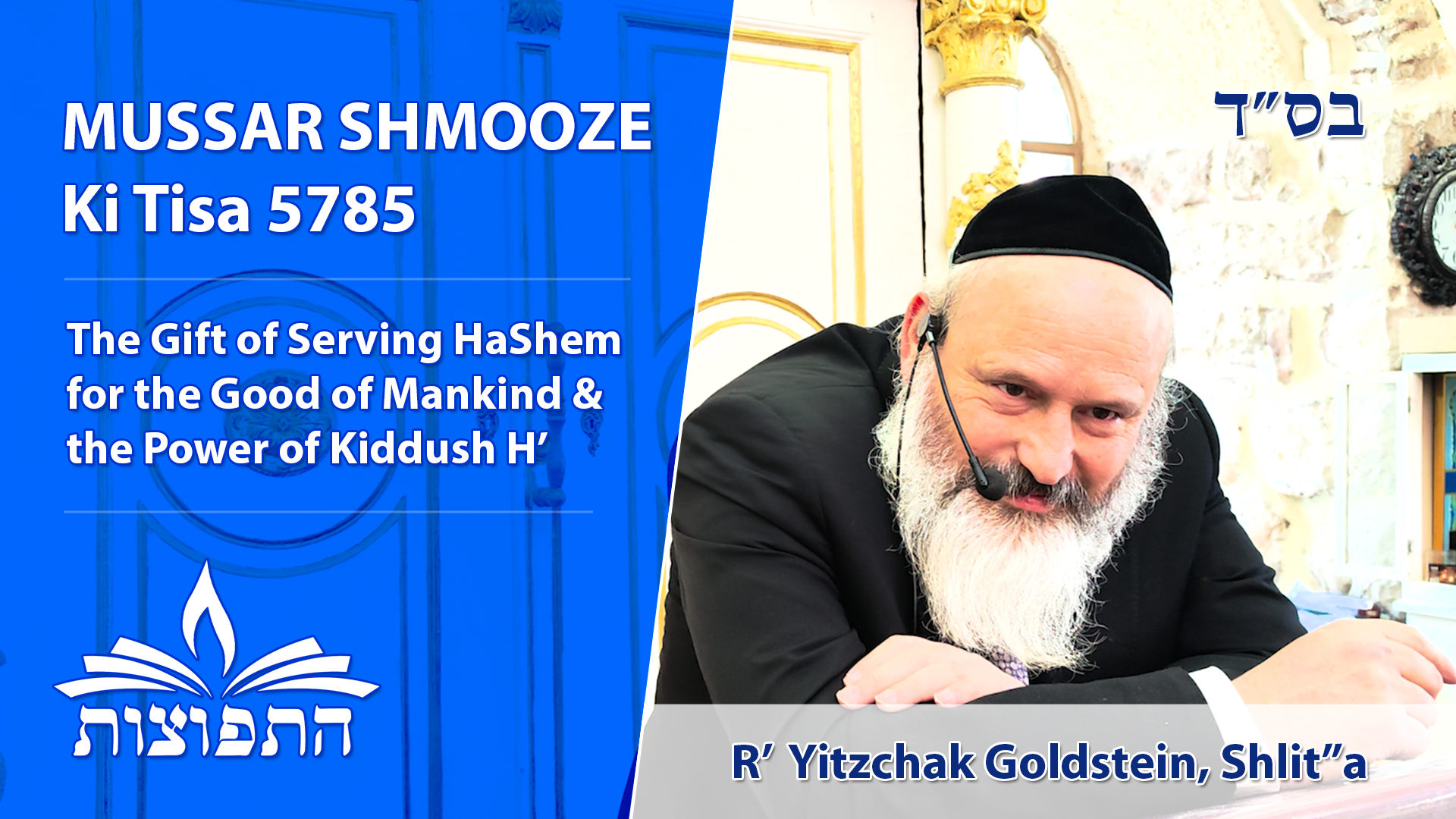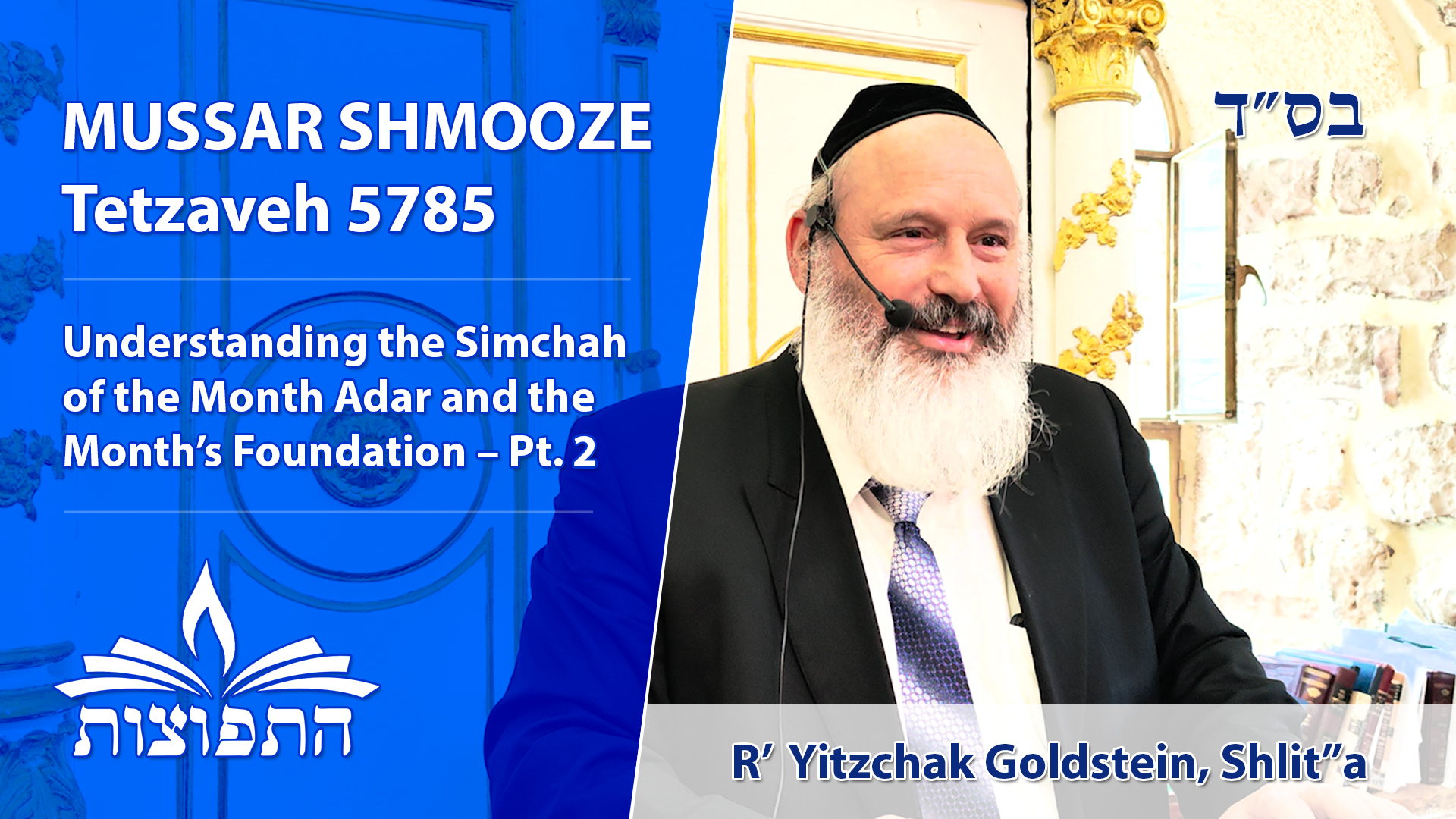The Rosh Yeshiva discusses the sin of publicly desecrating the Name of HaShem and how it is atoned for
The Rosh Yeshiva discusses the prohibition in Parashas Emor that prohibits a kohein (priest), a son of Aharon (Aaron), with a physical defect from making offerings to HaShem in the Temple, together with related ideas about the importance of those who are associated with HaShem’s Torah presenting themselves well.
‘The blessing of HaShem brings wealth’ (Mishlei 10:22)—This refers to Shabbos, of which it is said, ‘And G-d blessed the Seventh Day.’
– Talmud Yerushalmi, Moed Katan 3:4
The Rosh Yeshiva discusses and explains a Daas Zekeinim on the significance of the location of the parashiyos (Torah portions) on Tzara’as (“leprosy”) in the Torah, between mentions of the sons of Aharon (“Aaron”) HaKohein (the High Priest)—a serious warning about pride and looking down on others.
The Rosh Yeshiva discusses the spiritual condition of tzara’as (known in English incorrectly as “leprosy”) described in Parashas Tazria-Metzora, its heavenly purpose and use, and why the Jewish people are no longer afflicted with it.
The reason might surprise you!
Torah From Zion The Importance of Having a Dream to Do More and Becoming a Real Man March 20th, 2025 / 20th of Adar, 5785 https://youtu.be/4Qw6guPrPcg The Rosh Yeshiva speaks about the words of Shemos (Exodus) 35:21 in Parashas Vayakheil, …
Why do we mourn the Korban Tamid and the Beis Hamikdash? Discover why their loss should still shake us today. Are we truly longing for redemption?
The realities and dangers of the Ayin HaRa (the Evil Eye), beginning with what the Torah says in Parashas Ki Sisa about counting the Jewish people.
The Gift of Serving HaShem for the Good of Mankind & the Power of Kiddush HaShem
Understanding the Simchah of the Month of Adar & the Month’s Foundation – Pt. 2

